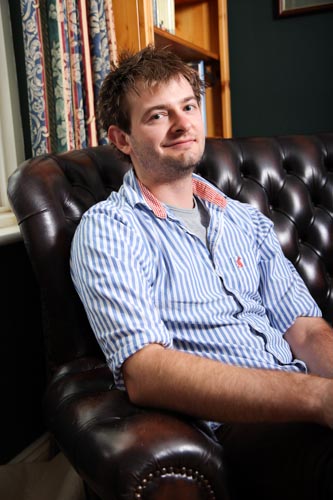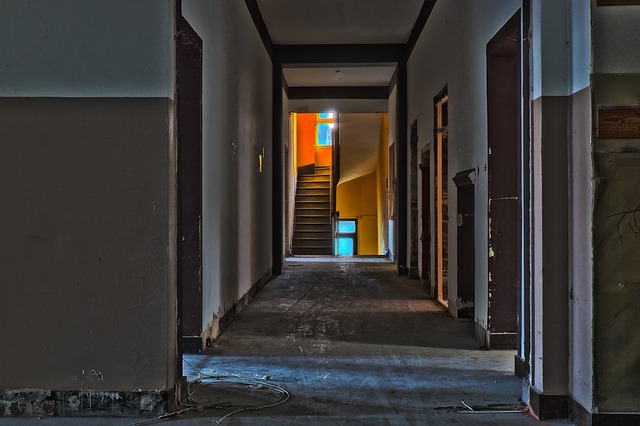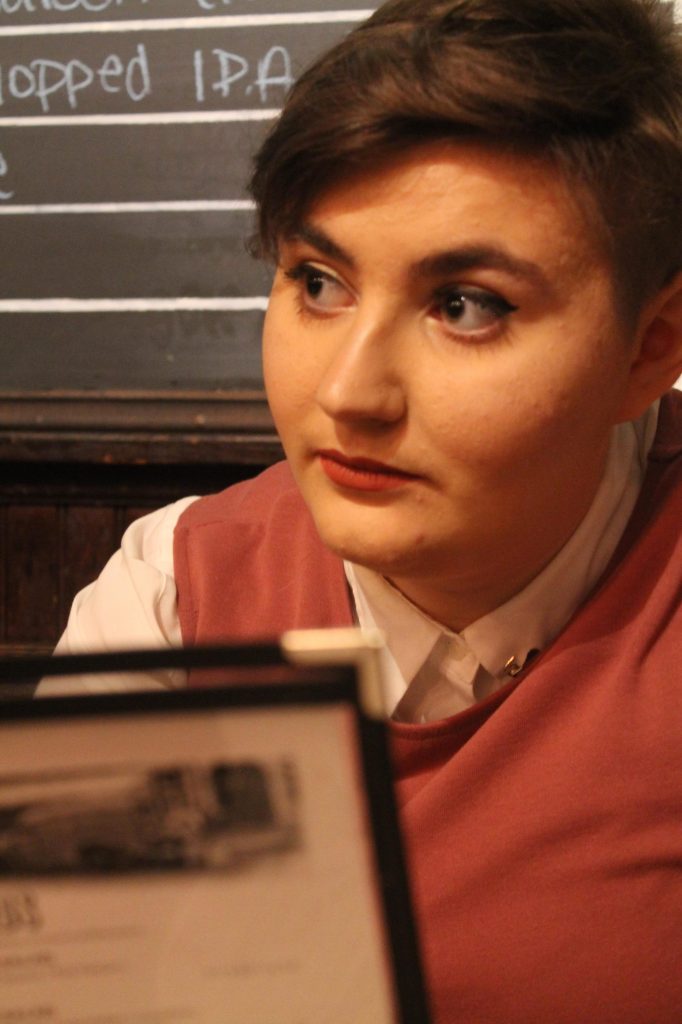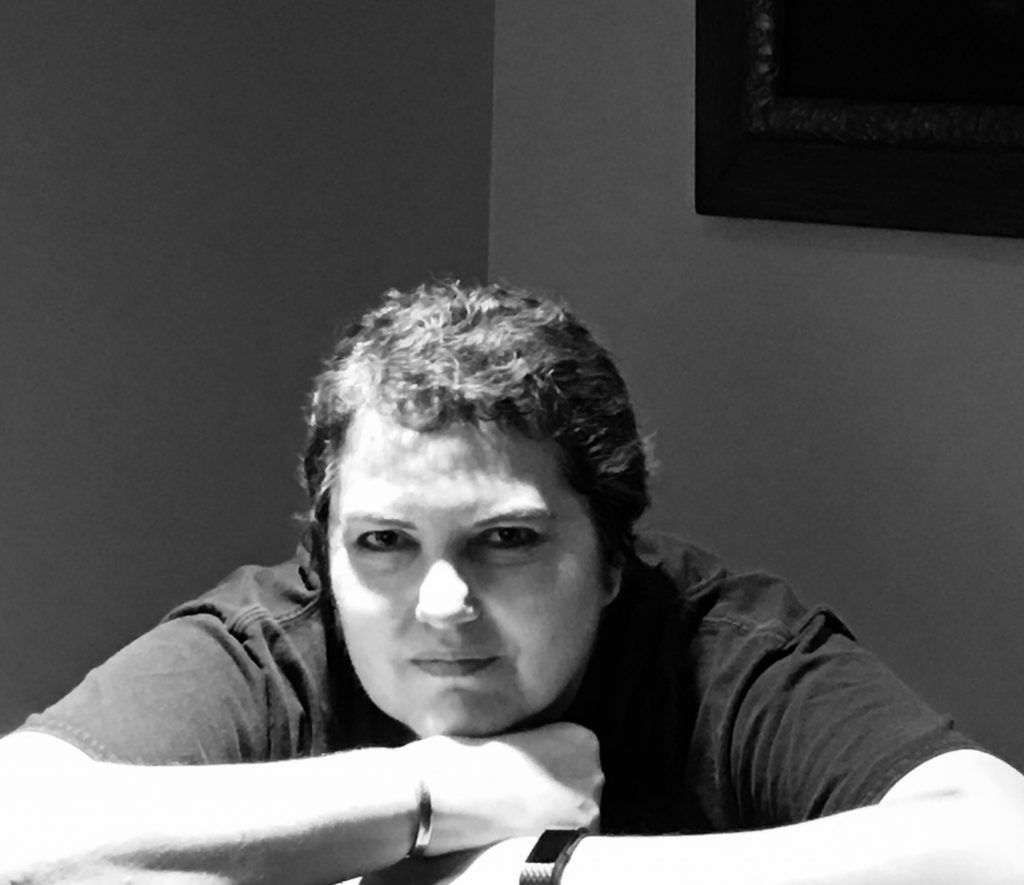I’m going back in time, you’re coming with me. But we won’t be observing dinosaurs, watching the Spanish Armada burn, or meeting Cleopatra. We’re going back in time to look at a ceiling.
I can see the cogs turning. You’re thinking Sistine Chapel, or maybe Grand Central Station. You’re wrong. We’re going back in time to look at a white ceiling somewhere in rural Nottinghamshire. It’s plastered over now, but six years ago it was twisted, wrinkled, and warped, the combined result of age, swollen beams, and a dodgy paint job.
To an imaginative mind, the wrinkles in the ceiling form little shapes. Combine these shapes and (with a touch of artistic licence) they look like objects, sometimes animals. We’re looking at a section of the ceiling towards the back of the room. The wrinkles here form the image of a gecko. More specifically, a male crested gecko with three legs and a bulbous head embarrassingly out of proportion with its body. And here’s where it gets really weird. Because this is a story and in stories you can do whatever you want, we are going to inhabit the gecko’s body. So, in we go.
Okay. To recap, we’re six years in the past inhabiting the likeness of a three-legged gecko worn into an old ceiling. It’s pretty cramped (get your elbow out of my nether region), but there must be a reason we’re here. And there is. He’s lying in the bed directly beneath us. It’s a sleeping man: early twenties, messy brown hair, pale, and a little bit too skinny. He is, of course, a younger version of me. This may be a story, but it’s a true story. Sort of.
At this particular time Younger Me is just waking up. It’s the middle of the day but he’s not sleeping in, he’s only been asleep for a few minutes. In fact, his anxious mind will not let him sleep for more than ten minutes at a time, maybe a couple of hours during the night.
Younger Me comes around and just so happens to be facing upwards. He’s looking at us. Now, I don’t know if you’re familiar with the paradoxical nature of time travel, but we need to be very careful about how we act in the past. If we’re not careful we might inadvertently form an Earth-obliterating black hole or, much worse, become our own grandad. What I’m trying to say is that subtlety is key. So, let’s just wiggle one of the gecko’s feet.
Below, Younger Me has seen the gecko move. He’s spent days staring up at the gecko, but it’s never moved before. Surprisingly, Younger Me doesn’t look surprised. This is because he’s passing the foot-wiggle off as a side-effect of sleep deprivation; a minor hallucination. But we’re not going to let him off that easily. We’ll make the gecko speak. We’ll say: The doctor will tell you it’s not short-term. I can remember the gecko saying that. Sort of.
‘The doctor will tell you it’s not short-term.’
Younger Me is paying proper attention now. His bottom lip is quivering and he seems to be trying to ask a question. Come on, Younger Me, spit it out…
‘Did you just … talk?’
Yes, Younger Me. The pretend, three-legged gecko in your ceiling just spoke to you. Now, this might seem slightly cruel, but we’re not going to be replying to Younger Me’s question out loud. I distinctly remember the gecko not saying anything else that day and we don’t want to mess with the past too much (remember: black hole), so we need to flash forward. That’s something else you can do in stories.
—
It’s about a month later and we’re back inside the gecko. Younger Me is still in the bed beneath us; he’s reaching over to his bedside table for a glass of water and his medication. Swallowing all of his meds is a bit of an ordeal and may take Younger Me a while. Let me fill the time. The doctor spoke as we/the gecko predicted and Younger Me is still virtually bedbound. He can just about make it out of his room to shower and eat, but doing so exhausts him and causes him immense pain. In the time we’ve been gone, Younger Me has spoken frequently to the gecko. He’s the only person who understands what it’s like to be stuck in one place all day, every day. The gecko rarely responds, however.
‘Is it the pain or the boredom that’s the worst part?’ we make the gecko say.
Younger Me has finished taking his pills. He takes a deep breath and replies, ‘It’s the failure. You know that, Mr. Gecko. I’ve told you before.’
Oh, yes, I forgot Younger Me told the gecko that. We need specifics though, so let’s use the gecko to get some. ‘How have you failed?’
Younger Me swallows hard. ‘I had to drop out of university and abandon all of my life plans. My body has failed me and I kind of feel like I’ve failed at life.’
Oh dear. Younger Me is not in a good place. Let’s try and comfort him. ‘But it’s not your fault, you did nothing wrong.’
‘My fault or not,’ Younger Me answers, ‘it doesn’t change the fact that I can’t do any of the things I want to do.’
‘You’ve befriended a talking gecko,’ we answer. ‘That’s a life achievement right there.’
‘No offense, but you don’t really talk that much, Mr. Gecko. And even when you do, you’re just a product of my anxious, sleep-deprived mind anyway.’
I’m not entirely sure what to say to that. Any ideas? None? Okay, let’s flash forward then.
—
We’re back in the gecko, six months down the line. Younger Me is still beneath us, he’s listening to the radio. He can’t watch TV or read because being in any position other than lying perfectly flat causes his neck muscles to burn and the dreaded nausea to set in.
Oh, look at that. Younger Me has turned off the radio now. He’s twisting his head and stretching his neck muscles. A few seconds to the extreme left, a few seconds to the extreme right. Graded exercise. He’s trying to do a few seconds more each week. It’s what the doctor told him he should do. It’s excruciating though, and the difficulty is all the more strange when you consider that he used to think nothing of cycling non-stop for twenty miles. This looks like a bad time; let’s flash forward again.
—
It’s a year since we first inhabited the gecko. We’re back inside its body now, Younger Me is still beneath us. He doesn’t look any better, to be honest. In fact, he’s crying. Being virtually bedbound for a year will do that to you, no matter your age or gender, no matter how strong or energetic or happy you used to be.
‘Epstein-Barr,’ Younger Me mutters, as he often does. ‘Epstein-bloody-Barr.’
Uttering those words is a kind of ritual to him. He’s cursing the name of the virus that kick-started this miserable ordeal. The Epstein-Barr virus causes glandular fever and, in a small percentage of cases, glandular fever can lead to CFS.
CFS stands for Chronic Fatigue Syndrome, but you might know CFS as an illness that can cause much more than just fatigue. If you haven’t heard of it, you have at least just witnessed it. And, for the last year, Younger Me has been living it. He really looks like he needs someone to talk to. In fact, the conversation we’re about to have is the whole reason we travelled back in time. Sort of.
‘Afternoon,’ we make the gecko say.
Younger Me sniffles and focuses on the gecko. ‘Haven’t heard from you in a while, Mr. Gecko.’
‘Sorry,’ we answer. ‘Been doing gecko stuff.’
‘That’s okay, I’ve been busy too.’
‘No you haven’t.’
‘True,’ Younger Me responds, ‘but I thought I’d try and save your blushes.’
We leave a short pause and then say, ‘Did you know that geckos can predict the future?’
‘What?’
‘I’m serious. That’s how I knew what the doctor would tell you when we first spoke.’
Younger Me’s eyes are wide, he doesn’t quite know what to ask first. We pre-empt his question. ‘You’re never going to get your old body back.’
‘Oh …’
‘Sorry,’ we say, ‘but when it comes to bad news, geckos tell it straight.’
We let the notion settle and then we add, ‘But that doesn’t mean you can’t do all of the things you want to do.’
‘How?’ Younger Me asks.
‘You have an active imagination, right?’
‘I’m talking to a make-believe gecko that lives on my bedroom ceiling. I’d say so, yes.’
‘Well, you need to start channelling that imagination.’
‘Channelling it?’ Younger Me repeats, confused.
‘Yes. You need to start writing, you need to start telling stories. All of the places you want to go, all of the things you want to do, you can write about doing them instead of doing them.’
‘But—’
‘No buts,’ we interrupt. ‘Think of it like your graded exercise. Start with just a few words a day, then a sentence, then more. Build it up. Eventually you’ll be able to go anywhere and do anything you want: swim in tropical seas, climb distant mountains, even travel through space and time. And it will help, I promise.’
‘I’ve never written a story before.’
‘So?’ we say.
‘You really think it would help?’
‘I know so. And if you work hard enough, people might read your stories. You might get to take other people on strange and amazing journeys with you. You might even teach them something.’
‘I know better than to disobey imaginary talking geckos,’ Younger Me says, reaching for his laptop. ‘I’ll give it a go.’
Younger Me rests the laptop on his duvet and opens up a blank document. He titles it and begins to write. It’s not important for us to look at what Younger Me writes, it will probably be terrible and he won’t be able to write much anyway. Like we said though, he needs to start small and build it up. It will help. It will help a lot.
Ah, Younger Me has put his laptop aside and is snuggling down into his pillow now.
‘Maybe you’ll write a story about a talking gecko one day,’ we say. But Younger Me is already fast asleep.
(This story first appeared in Allies Everywhere.)
 Trained as a scientist, Jack Croxall concluded a life in the lab wasn’t for him. After discovering a passion for writing he’s now an author/blogger battling chronic fatigue syndrome (CFS) in life and in prose. He tweets via @JackCroxall and blogs at www.jackcroxall.co.uk
Trained as a scientist, Jack Croxall concluded a life in the lab wasn’t for him. After discovering a passion for writing he’s now an author/blogger battling chronic fatigue syndrome (CFS) in life and in prose. He tweets via @JackCroxall and blogs at www.jackcroxall.co.uk




 Caroline Johnson has two poetry chapbooks and more than 70 poems in print. A nominee for the Pushcart Prize and Best of the Net, she has won numerous state and national poetry awards. Past president of Poets & Patrons of Chicago, her full-length poetry manuscript, The Caregiver, is forthcoming from Holy Cow! Press in 2018.
Caroline Johnson has two poetry chapbooks and more than 70 poems in print. A nominee for the Pushcart Prize and Best of the Net, she has won numerous state and national poetry awards. Past president of Poets & Patrons of Chicago, her full-length poetry manuscript, The Caregiver, is forthcoming from Holy Cow! Press in 2018.